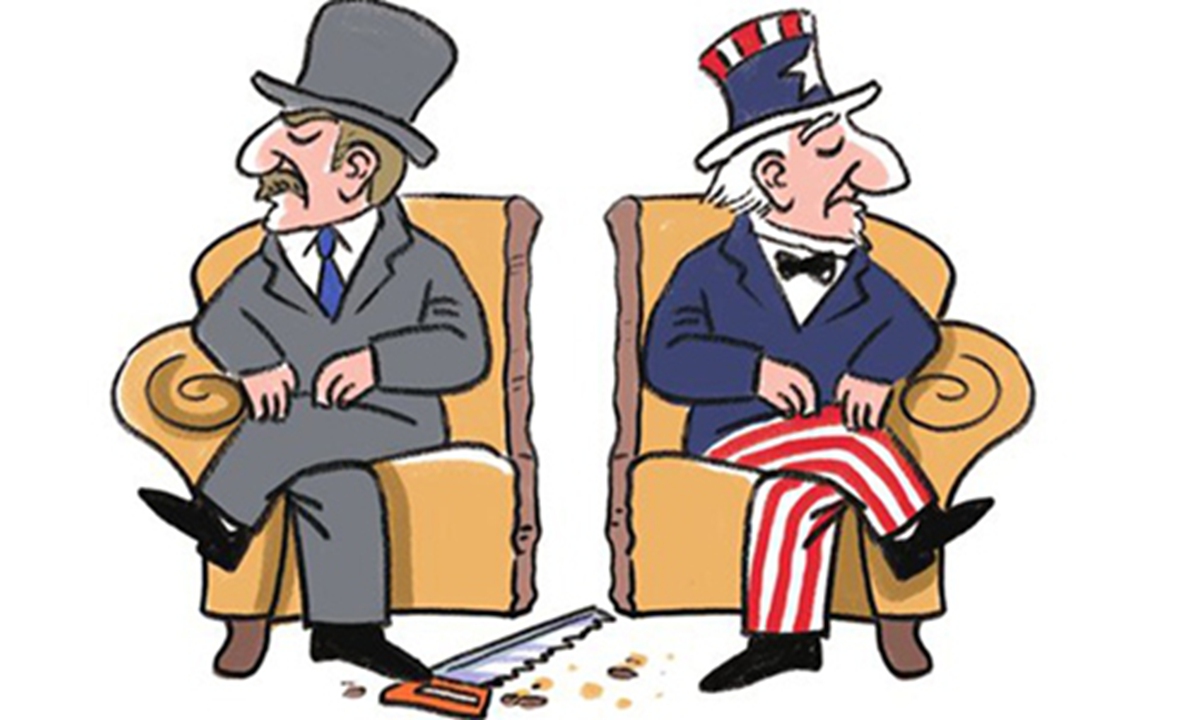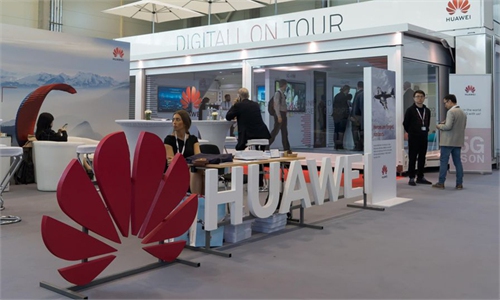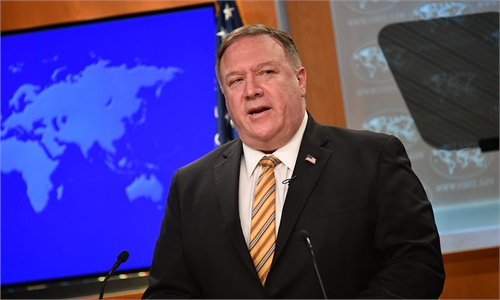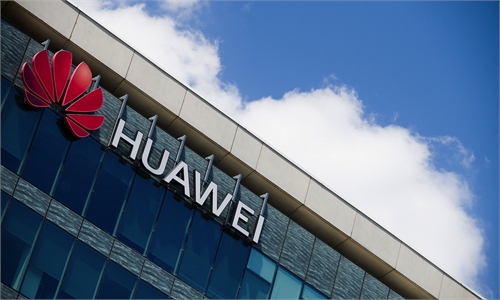
Illustration: Liu Rui/GT
When I grew up in West Germany in the 1970s and 1980s, the US was "the land of opportunity," but "Ami go home!" was also still a popular slogan. Originally from East Germany, the political left in West Germany did not welcome the military presence of the US either, especially a nuclear one.It is likely that US Secretary of State Mike Pompeo would have been confronted with similar slogans, had his trip from August 11-15 to "Central Europe" really taken him to the most Central European country, Germany, with nine European land borders, and not to Eastern Europe. He knew that no "fantastic deals" and great photo-ops were in the cards in Germany.
The relationship between the US and Germany is the most strained it has been in a very long time, on the government level as well as in the minds of ordinary Germans.
A representative Civey survey found that more than 83 percent of Germans rate Trump's presidency as "bad," more than 75 percent as "very bad," and fewer than 13 percent see it as "good" or "very good."
Politicians and population agree on a number of fundamental issues. Germany believes in global and multilateral institutions such as the Paris Agreement, the Iran Nuclear Deal, the World Trade Organization, the World Health Organization and so on. We disapprove of the systematic dismantling of these institutions.
Therefore we do not want to de-globalize, de-couple, or even roll back China. "EU-China - A strategic outlook" published in March 2019 outlines the strategy of the European Commission: The key words "cooperation partner" and "negotiation partner" stand for continued engagement. "Economic competitor" stands for eye level and "systemic rival" finally acknowledges that the two political systems are most likely going to remain different indefinitely.
Simultaneously, the way the US currently treats even its allies has changed, apparently with the motto, "With friends like these, who still needs enemies?" We feel the gun of extortion on our chest to choose between the US and China, and we are being bullied in other matters of national and European sovereignty.
Needless to say, we don't appreciate attempted extortion, such as the threat that military intelligence will not be shared if Germany includes Huawei in its 5G network. US Ambassador to Germany Richard Grenell tweeted within hours of taking office in Germany: "German companies doing business in Iran should wind down operations immediately." This was not the move of a diplomat, but rather an occupying force.
Trump has demanded German defense spending of at least 2 percent of GDP, a non-binding NATO target. He is withdrawing 12,000 troops from Germany. Should we be afraid? Only the townships housing US barracks seem really alarmed, as their purchasing power will disappear.
Half the US troops are to be moved east to Poland, to their seeming delight. But not expanding NATO eastward was instrumental to gaining the USSR goodwill for German reunification. Encroaching on Russia would be more destabilizing.
Hotly contested between Germany and the US is Nord Stream 2, a major natural gas pipeline through the Baltic Sea from Russia to Germany, half financed by Russia, half by European companies, bypassing Poland. The US complained Germany's complete dependency on Russian gas, but only 40 percent of German energy demand is for Russian gas. Coincidentally, the US wants to export its own shale gas.
The moment Germany weighs different dependencies, the US blackmails it with illegal extraterritorial sanctions. Three US Republican senators even sent a letter vowing "crushing legal and economic sanctions" to the operators of a small German port for provisioning Russian vessels assisting with constructing the Nord Stream 2 natural gas pipeline.
"Soft power" as a US asset took decades to build but will be quickly ruined. It is up to China to acquire more soft power by persistently being a more responsible global citizen than the US. Currently, that bar couldn't be much lower.
The author is founder and managing director of market research and consulting company Débrouillage Ltd. opinion@globaltimes.com.cn



